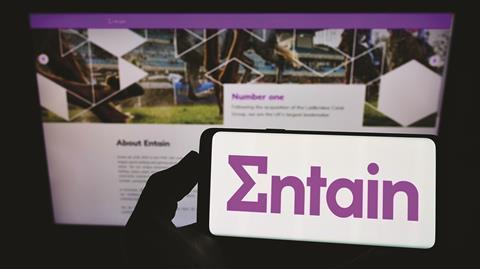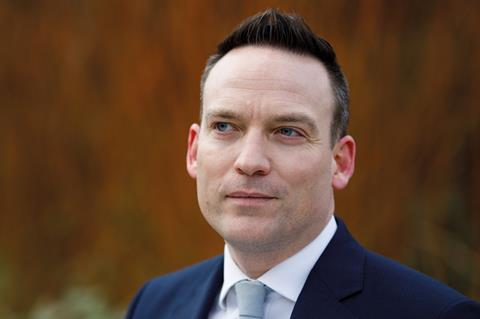Advice projects highlighted for UK Pro Bono Week showcase a legal profession increasingly focused on strategically important advice against a backdrop of soaring unmet need. Katharine Freeland reports
The low down
Articles on pro bono legal work attract some predictable comments. They range from professionals who would like more coverage for work they have been unable to bill vulnerable clients or the Legal Aid Agency, to those who point out that other professions do not place an expectation on their members to work for free. Supporters of pro bono counter that they do not advise on matters where legal aid or other funding is available, and that they often rely on the social welfare legal sector’s expertise in order to advise safely. What is certain is that the level of unmet legal need is now off the scale, leading commercial law firms and in-house legal departments to seek instructions that will assist clients while having a wider effect.
Pro bono has evolved rapidly in recent years. Most firms now distinguish pro bono from their corporate social responsibility programmes, which involve helping the local community or managing their own environmental impact but do not always employ legal skills. Mid-tier firms and above have formalised their provision of pro bono.
Pro bono legal work has its origins in US firms steeped in a culture of institutional philanthropy. Now, pro bono in many commercial law firms is viewed as a stand-alone business function, with dedicated pro bono lawyers and partner leads.
Thomson Reuters Foundation’s TrustLaw Index of Pro Bono for 2024 revealed that, in England and Wales, 96% of responding firms had some form of pro bono infrastructure, including pro bono policies (92%) and formal pro bono criteria. The report also recorded a threefold increase in firms reporting a formal diversity commitment in relation to pro bono, from 12% in 2022 to 34% in 2024. Access to justice is the most popular focus (76%), followed by immigration, refugees and asylum (60%), and LGBTQ+ rights (38%). An up-and-coming sector of interest is environment, climate and biodiversity (40%).
The institutionalisation of pro bono makes sense. Lawyers can be deployed to where they can render the most assistance, and the quality and effectiveness of pro bono programmes can be tracked. There are also excellent examples of this happening in the in-house sector.
In-house guide
'Pro bono has many benefits, including opportunities for practice development and collaboration with international colleagues'
Simon Zinger, Entain
Simon Zinger, general counsel of betting and gaming group Entain, recently created a pro bono guide to bring structure to Entain’s pro bono work and encourage everyone in the worldwide governance team to get involved. ‘The guide sets out what is expected of all colleagues when it comes to pro bono and community work. In turn, it also explains what the company will do to help when it comes to capacity and resourcing,’ he explains.

Zinger also set up working groups and a global pro bono committee to share the expertise gained through working on English pro bono matters with other jurisdictions. The committee is chaired by two pro bono managers and has local representatives (Gibraltar, London, Europe, Australia), who source pro bono opportunities for their region and report back to the committee on the progress of matters, critical wins and lessons learned.
‘While being the “right thing to do”, pro bono has many benefits for Entain and the individuals who participate in it,’ he says, ‘including opportunities for practice development, collaboration with international colleagues and relationship-building with panel law firms.’
Entain’s global pro bono team helps a broad range of charities, with a particular focus on data privacy and intellectual property advice. The team often identifies projects through Thomson Reuters Foundation’s TrustLaw. This has a database for each region, connecting lawyers with vetted civil society organisations for legal advice. Entain may then choose to bid for work in partnership with a private practice law firm.
Structured pro bono initiatives like Zinger’s are not commonplace in-house, although interest is growing. LawWorks and the Law Society have both produced pro bono guides for in-house solicitors in response to increased interest in pro bono programmes.
Obstacles perceived by in-house teams include confusion over the regulations in respect of ‘reserved’ legal activities (such as regulated claims management services) and whether they are covered by professional indemnity insurance. In-house practitioners may also be concerned that pro bono counts as an ‘outside service’ in terms of their employment contract, as well as be unsure of how to utilise non-lawyers in the pro bono team.

Commercial firms
An example of a structured private practice pro bono programme can be found at City firm Travers Smith, led by its director of pro bono, partner Sam Cottman. Before his appointment to the post in 2020, Cottman spent 12 years in the firm’s dispute resolution team before choosing to focus on pro bono full-time. Since then, he has reconfigured the firm’s pro bono strategy to focus on four core areas: climate, environment and sustainability; diversity, inclusion and social mobility; vulnerable groups such as victims of domestic violence and refugees; and the rule of law.

‘Pro bono has become a significant part of the firm’s identity, evolving from one key client in 2015/16 to a broad portfolio spanning multiple social causes,’ says Cottman. Each engagement is a considered choice, with work turned away to maintain the most targeted results. As with its billable work, Travers operates without targets for pro bono hours and does not make participation compulsory. Instead, it encourages a culture where lawyers want to be involved. ‘Around 75% of lawyers engaged with pro bono last year; the proportion is high but entirely voluntary,’ says Cottman. Pro bono participation is taken into account in performance reviews and remuneration – a stance that is now the norm in most firms with strong pro bono practices.
'We collaborate and share knowledge and experiences with other law firms through pro bono networks and training programmes'
Sam Cottman, Travers Smith
Standout projects include working for the Domestic Abuse Response Alliance, a nationwide initiative involving 11 firms that provides legal assistance to domestic abuse victims. Climate and green tech initiatives, such as the Green Tech Legal Collaborative, which supports start-ups with innovative, sustainable tech, are also popular.
‘We encourage lawyers to find pro bono work that aligns with their interests and skills, and are open to ideas,’ says Cottman. ‘We also collaborate and share knowledge and experiences with other law firms through pro bono networks and training programmes.’
Collaboration and inspiration
- The UK Collaborative Plan for Pro Bono (UKCP): a collaborative initiative encouraging firms to commit to a minimum of 25 pro bono hours per fee-earner annually.
- In House Pro Bono Group: supports in-house teams in running pro bono programmes. Inspired by the UKCP, the group launched an In House Pro Bono Pledge in 2024 to encourage companies to pledge their commitment and take practical steps to ensure their teams can undertake pro bono work.
- LawWorks: a charity that connects solicitors with individuals, charities and community groups who need legal advice. It provides clinics and programmes and helps in-house teams, law firms and law schools set up and run successful pro bono programmes. LawWorks also gathers evidence from its networks to advocate for policy changes that improve access to justice and address barriers to pro bono work.
- National Pro Bono Centre (NPBC): a UK-based hub that enables charities and NGOs to connect with legal professionals and helps lawyers to find opportunities to volunteer their time and expertise. NPBC also hosts meetings, facilitates networking and events to foster collaboration, and provides guidance on how to set up pro bono programmes.
- Access to Justice Foundation: a charity dedicated to increasing free legal support across the UK. It raises funds and distributes grants to support pro bono projects, law centres and independent advice agencies which help people who need legal advice on housing, employment and immigration matters.
- Thomson Reuters Foundation’s TrustLaw: The world’s largest pro bono network, connecting thousands of NGOs, social enterprises and independent media with law firms and in-house legal teams. Lawyers provide legal advice on operational matters and research projects, helping these organisations with contracts, data protection and intellectual property.
- The Law Society has a variety of resources on pro bono, including its manual: tinyurl.com/ybkj6h9n; and guide for in-house solicitors: tinyurl.com/rm5akdc6
Business benefits
Turning pro bono into a business function has multiple benefits. Not only does it provide an important sense of social contribution, but also an immersion in both technical and real-life skills for junior lawyers, giving them a level of client responsibility and contact that may, in larger firms, elude them on big mandates.
Firms that are known for pro bono report that job applicants, from potential trainees to lateral hires, cite an established pro bono programme as a fundamental draw. ‘Legal talent is drawn to firms where pro bono is integral and provides an opportunity to get involved in wider societal initiatives that give something back,’ says Cottman.
US approach
'Associates and partners can bring in causes or charities they are passionate about; these are vetted for conflicts and then supported by the firm'
Michaela Croft, Jenner & Block
US firms, which have had pro bono embedded in their strategic thinking for many years, have a different take. With 11 US states requiring firms to report pro bono hours and pro bono a condition of bar admission in New York – according to the Index of Pro Bono report – pro bono is rarely just an option across their global offices. There is no such obligation on UK law firms. Rather, initiatives such as the UK Collaborative Plan for Pro Bono encourage practitioners by setting target hours.
‘Pro bono is a fully integrated part of firm culture, not a separate programme,’ explains Michaela Croft, London-based special counsel and member of the global pro bono committee at Jenner & Block. Lawyers are expected to fill non-billable hours with pro bono work if billable work is unavailable. There is no hard distinction between billable and pro bono clients; all matters undergo the same conflict checks and processes.

‘Associates and partners can bring in causes or charities they are passionate about; these are vetted for conflicts and then supported by the firm,’ says Croft. Pro bono contributions are factored into performance reviews at all levels.
The results of this approach are impressive. In 2020, the firm committed $250m over five years to pro bono work, a milestone reached within 3.5 years, prompting a reassessment of future targets.
Recent projects for Jenner’s London office include working with the Homeless World Cup, providing legal support on contracts, negotiations with FIFA and arranging film rights for a Netflix adaptation.
Pro bono immigration advice includes assisting Afghan refugees, work which is coordinated across the UK and US offices. A prominent recent engagement was acting for Coram, a children’s charity, in the Covid inquiry. ‘This was an important pro bono instruction to which we could contribute our legal skills through providing significant preparatory work for the charity to put its case effectively at the inquiry,’ says Christine Braamskamp, UK managing partner. ‘It was also an excellent developmental opportunity for our lawyers.’
At Covington & Burling, 159 of the 166 lawyers in the London office are involved in pro bono, contributing over 16,300 hours in the past year. As well as international pro bono projects for the Public International Law & Policy Group and the Clooney Foundation for Justice, the London office partnered with the Schools Consent Project (SCP) to deliver essential education on sexual consent law to young people aged 11-18.
Participating lawyers underwent specialised SCP training to deliver workshops, which included explaining the legal position and interactive activities to challenge misconceptions and encourage students to respect personal boundaries.

Employee-owned firm
Regardless of firm size or focus, in recent years, many have experienced an escalating demand for pro bono from communities, practitioners and potential recruits that has necessitated a reappraisal of how they approach it. Hudgell Solicitors is a north-east firm that specialises in claimant litigation, with a particular focus on personal injury, clinical negligence and civil liberties. CEO Rachel di Clemente explains how its approach to pro bono has evolved: ‘Historically, pro bono work was ad hoc and unstructured, but the last three years have seen it become a formal, integral objective for all legal teams, equal in importance to billable work,’ she says.
Heads of department are now responsible for ensuring that pro bono is embedded in their team’s goals, as the firm focuses on distributing pro bono efforts across all departments.
Recognising the challenge of soaring demand – driven mainly by cuts to legal aid – Hudgell has created a process to handle pro bono requests.
The first step is providing self-help guidance to those without access to legal support. If this is insufficient, the need for pro bono assistance is triaged, with the criteria considered including client vulnerability, whether it is a crisis, or if the client has achieved poor results in an arguable case after self-representation.
‘There is a notable difference in the damages awarded after legal assistance versus self-representation, especially in criminal injuries cases, which is a strong motivation to step in,’ says Di Clemente. The firm regularly enlists assistance from those skilled in rehabilitation, counselling and financial advice.
‘Our employee-owned structure facilitates buy-in and makes it easier to prioritise pro bono rather than pure profit,’ she adds. ‘We have seen a trend of increased interest and expectation from both junior and seasoned lawyers for meaningful pro bono and social responsibility work. Our collaboration with other local firms and charities is highly rewarding, great for staff morale and is also a real talent attractor.’
With so much demand for their pro bono services, Di Clemente says that there is an ongoing internal debate about how to set pro bono boundaries – a struggle that most firms with recently evolved pro bono practices will recognise. The good news is that there is a groundswell of firms that actively want to contribute.
Di Clemente says: ‘Whenever we have approached smaller firms to help with pro bono work, they were always pleased to do it. They want to be involved in pro bono but are not always sure how to go about it.’ Law firms with established pro bono practices, which have set boundaries and incorporated pro bono as a valuable business function, can play a core part in sharing their knowledge not just with those they are trying to help but with the legal community at large.

Katharine Freeland is a freelance journalist
































No comments yet